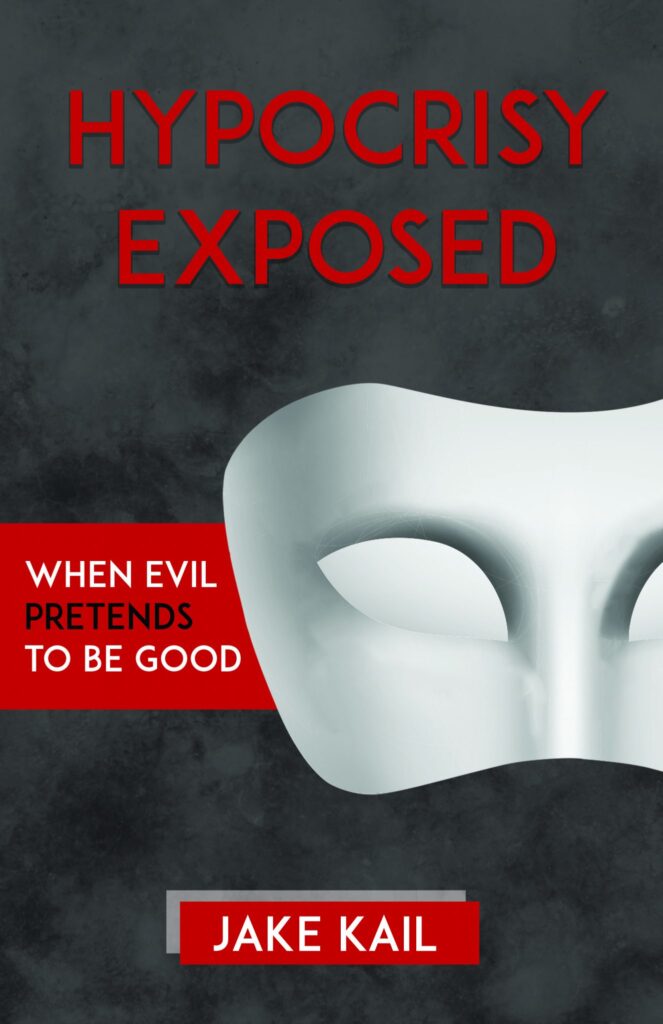
How Judas is an Example of Hypocrisy
October 3, 2019
Sermon: Keys for Staying on Fire
October 12, 2019
The following are excerpts from my new book, Hypocrisy Exposed:
Imagine a man who is known as a godly member of his church and is involved in volunteering in various areas of ministry, including teaching children’s Sunday school classes. He seems to be a committed follower of Jesus, and is well-liked in the church community. Now imagine that it comes to light that this same person has been guilty of sexually abusing various children in the church over the course of many years. How could this be true? How could a person who seemed to be so loving and holy be committing such grievous sins behind closed doors? How could he get away with it for so long without anyone suspecting it? How could he sleep at night without being convicted by the Holy Spirit or weighed down with a guilty conscience?
Imagine a woman who joins your church and gets involved in the intercessory prayer group. She has an amazing testimony of how she was set free from drug addiction. She seems to always have a new story of how God is using her to reach others and she gains more influence in the church as time goes on. There is only one problem: she is actually a practicing witch, and she has been sent on an assignment to bring division in the church and moral failure in the leadership. How could she do such a good job of fooling people? Why did no one discern who she actually was?
Imagine a man who serves on the deacon board of his church. He has an outgoing personality and is very likable. He helps lead the men’s ministry, can quote Scripture from memory, and is the picture of a family man. But at home, he is a completely different person. He degrades and abuses his wife verbally, emotionally, and sexually. He lies, manipulates, and intimidates. He indulges in pornography, and pursues sexual relationships with other women. He goes from being either completely uninvolved with his children, to being harsh and domineering with them. His wife lives in a swirl of confusion as to who he really is. If she worked up the courage to share any of this with church leadership, they would likely never believe her. How can this scenario be possible? How can a person portray himself in such a righteous way in public, but live the total opposite in private?
Sadly, even though these are hypothetical examples, they are very realistic situations that play out in churches all of the time. And many other examples of ongoing hidden immorality, manipulative and deceptive practices, and unforeseen betrayal could be given. What these three situations have in common, is that they are all examples of the nature of hypocrisy.
Growing in Wisdom and Discernment
How can we grow in discernment when it comes to recognizing hypocrisy? Admittedly, hypocrisy is not always easy to identify and may take time to see clearly. And if you are not close enough to the person or situation, you may not be able to get a clear picture of what is going on (apart from specific discernment given by the Holy Spirit). At the same time, God wants us to have the wisdom and discernment we need in order to recognize when evil is hiding in our midst. Below are some pointers that can help us to grow in our ability to discern hypocrisy:
- Embrace the fact that hypocrisy is a reality. Understand that there are professing Christians who live in duplicity and deception with very dark private lives. Therefore, we must learn to set aside any naivety regarding the nature of evil.
- Seek the Lord and cry out to Him for wisdom and discernment. We increase in wisdom by asking for it and seeking it like treasure (see Proverbs 2:1-5 and James 1:5).
- Immerse yourself in the book of Proverbs, gleaning insights about the way it describes various types of evil/foolish people, and how to interact with them.
- Trust your gut instinct regarding people or situations. This doesn’t mean that you need to jump to conclusions immediately, but if something feels off, you can proceed with caution while you wait for further discernment.
- Don’t disregard red flags. Again, don’t jump to premature conclusions, but instead of ignoring possible warning signs, examine the situation closer to determine if there is more going on than meets the eye.
- If you are in close relationship with a person in question, examine the fruit of their life over time. Words can be deceptive, but fruit doesn’t lie. Don’t look for perfection; but what is consistently being produced in their life (see Matthew 7:15-20 and Galatians 5:16-26)?
- Cultivate intimacy with God and communion with the Holy Spirit. He is the Spirit of truth who will guide us and reveal hidden things (see John 16:13 and 2 Corinthians 13:14).
- If somebody shares their experience of being victimized by a person who appears to be nice or godly, don’t be dismissive. We don’t want to make a place for false accusations, but many people have been abused behind closed doors and need to be validated, not marginalized. It is very difficult for victims to speak up and rare for allegations of abuse to be fabricated.
The church has too often been a safe haven for deceivers, abusers, and predators. Shepherds are supposed to protect sheep, not enable wolves. But unfortunately, many pastors and leaders have been more concerned with saving face and keeping their church’s good public reputation than standing with victims and dealing appropriately with situations of mistreatment or abuse. This is a great injustice. Our call to be loving does not mean that we must open our doors wide without discernment, accountability, and removal if necessary (see 1 Corinthians 5:12-13). As hypocrisy is exposed, we will see a shift in our ability to discern and remove wolves whose aim is to prey on the flock.
As we seek to grow in discernment, it bears repeating that we don’t want to take on a suspicious or paranoid approach to people or situations. Removing gullibility doesn’t mean that we must swing the pendulum the other direction and become cynical or fearful. Keep your focus on Jesus, trusting Him to increase your discernment and help you to maintain the balance of innocence and wisdom.
Click below to purchase from Amazon:





1 Comment
False accusations are not rare in society at the present time. I worked with violent boys and at orientation they warned the workers that it wasn’t ‘if’ but more likely ‘when’ false accusations happen. In Canada there are no consequences for making false accusations and these behaviours are increasing.